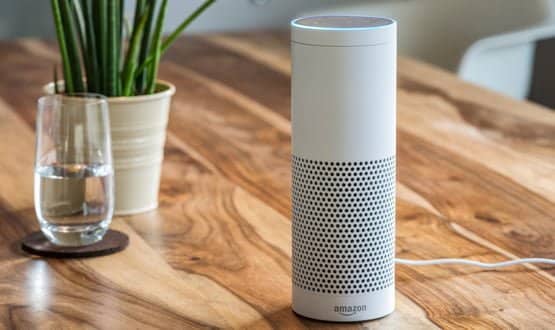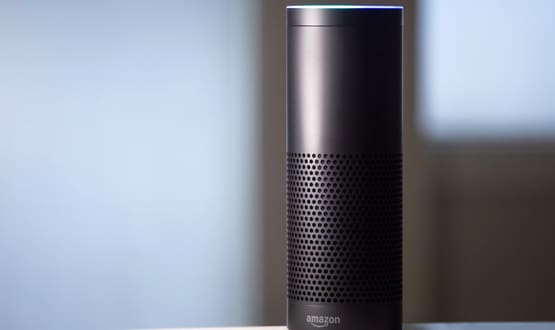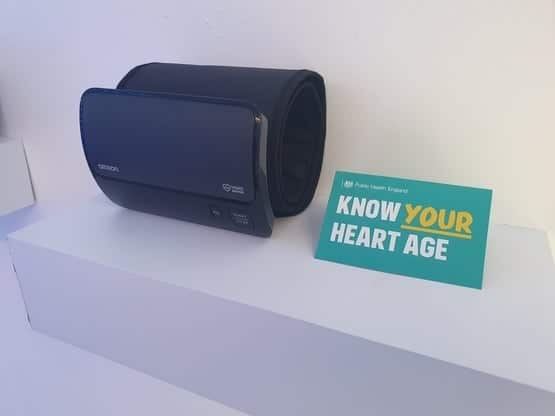Alexa will see you now: NHS partners with Amazon

A new partnership between the NHS and Amazon Alexa will bring verified health information to people’s homes.
It’s hoped the world-first collaboration will empower people to take greater control of their health and care.
Through simply asking Alexa questions about symptoms or treatments, the technology can provide qualified advice to users in the comfort of their own homes.
Amazon’s algorithms trawl information on NHS websites to provide answers to questions like: “How do I treat a migraine?”, “What are the symptoms of flu?” and “What are the symptoms of chickenpox?”.
By providing better access to advice on common illnesses, particularly for elderly or blind patients who are unable to access the internet on a smartphone or computer, it’s hoped pressure on GP services and A&E will be relieved.
For patients like Adi Latif, who is blind, the partnership will make accessing health information easier. He already uses Alexa for task like emails, ordering a taxi and news updates.
“Convenience is king and it’s brilliant to know I can ask Alexa about various illness and receive credible, NHS-verified information,” the 38-year-old from Camden said.
“It cuts out all the searching online, which can be a traumatic experience for many people – especially those who are disabled or not familiar with technology. Smart speakers such as Alexa are no doubt high tech, but they are designed in a way which allows you to have a conversation with them making them less daunting to use.
“NHS services need to be designed in a way that allows all people, including those who are blind or disabled, access them easily from the convenience of their own home.”
Announcing the partnership Matt Hancock, Secretary for Health and Social Care, said the partnership was about building a health and care system fit for the future.
“We want to empower every patient to take better control of their healthcare and technology like this is a great example of how people can access reliable, world-leading NHS advice from the comfort of their home, reducing the pressure on our hardworking GPs and pharmacists,” he said.
Also speaking about the announcement, Matthew Gould, chief executive of NHSX, said the public should have easy access to “reliable” information about their health.
He added: “By working closely with Amazon and other tech companies, big and small, we can ensure that the millions of users looking for health information every day can get simple, validated advice at the touch of a button or voice command.
“Part of our mission at NHSX is to give citizens the tools to access services and information directly, and partnerships such as this are an important part of achieving this.”
The NHS is not the only organisation who wants to integrate with Amazon’s Alexa tool. In October 2018, the charity Breast Cancer Care announced it had developed a virtual tool on the device which shares information on the signs and symptoms of breast cancer.
The tool can help guide women through a breast check and highlight the eight most common signs and symptoms of breast cancer to look out for.




4 Comments
I totally agree with you Tim. This is a positive step. However, I do understand the viewpoints of those who disagree with this development. The adoption and spread of technology in our care and health services will be built on trust; particularly trust in what happens to our data. I would like to see some explanation about this deal of what happens to the data around our questions and answers; will this be used for marketing purposes? I’ve got no problem with that, as a happy Amazon user, but I want to be able to able to make informed choices.
Plus, when is this coming to the Google Assistant so that the NHS does not unfairly favour one provider over another?
I do support what Tim says about being a lifeline and could help NHS services etc. But what if the ageing relative is not technical and does not know how to use this type of technology, nor no they want, what is perceived as, privacy intrusion, despite giving all the reasons for rather than against.
This fits well with our NHS work in Staffordshire, where we are helping to reduce isolation of people with long term conditions and their carers using Alexa Echo Shows to enable video conversations between relatives and friends, as well as empowering all kinds of elderly or disabled people to learn via Alexa how to manage their health better. Directing people to a UK resource for health information, rather than American sites, will be very useful.
I like the idea and as you think about your ageing mum at home alone and an hour away from family, it offers a real lifeline when local nhs services struggle with staffing due to Brexit issues. This is the reality of the situation, so I support it and ask the nay sayers for solutions rather than point out all the downsides please.
Comments are closed.